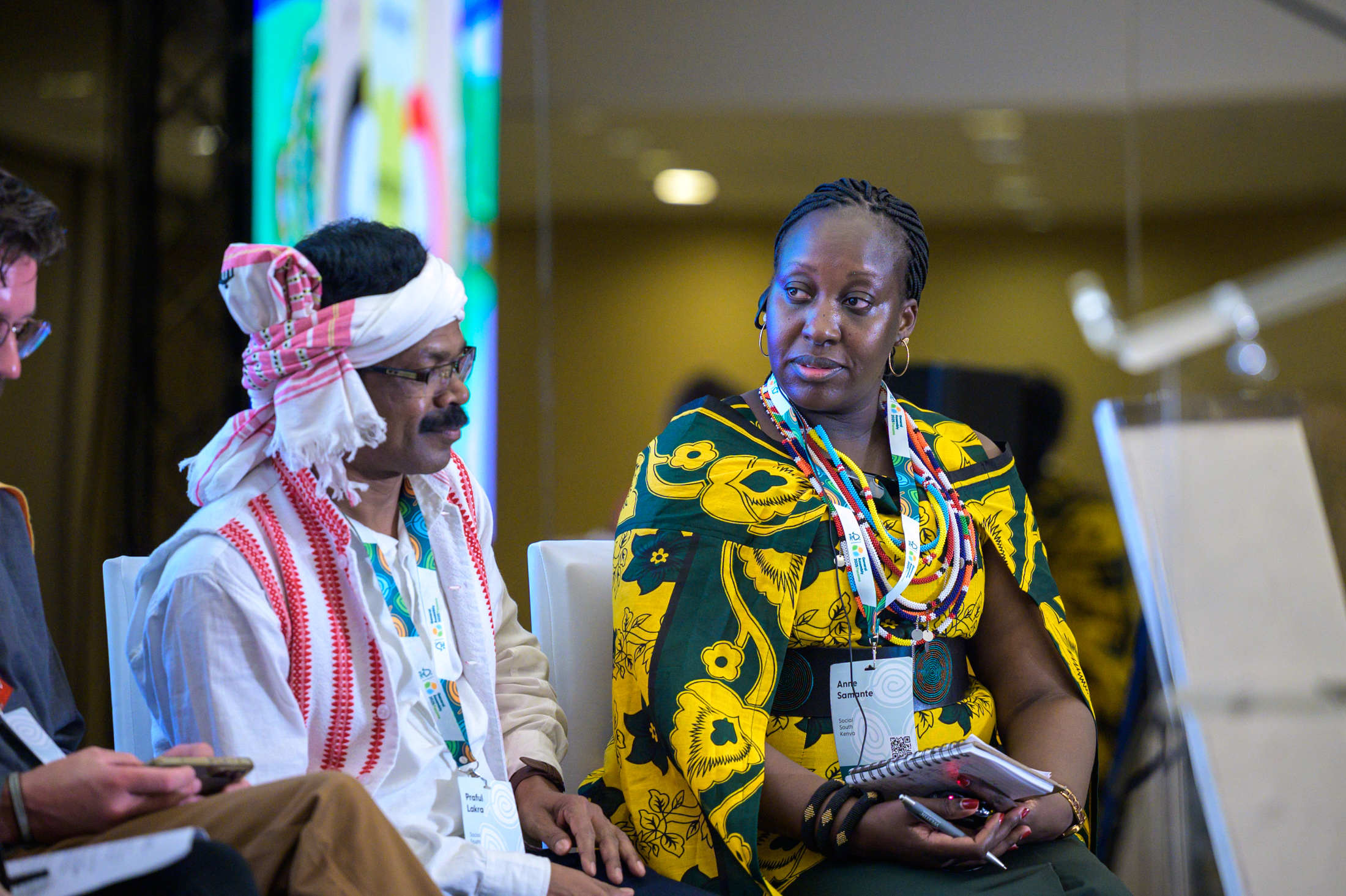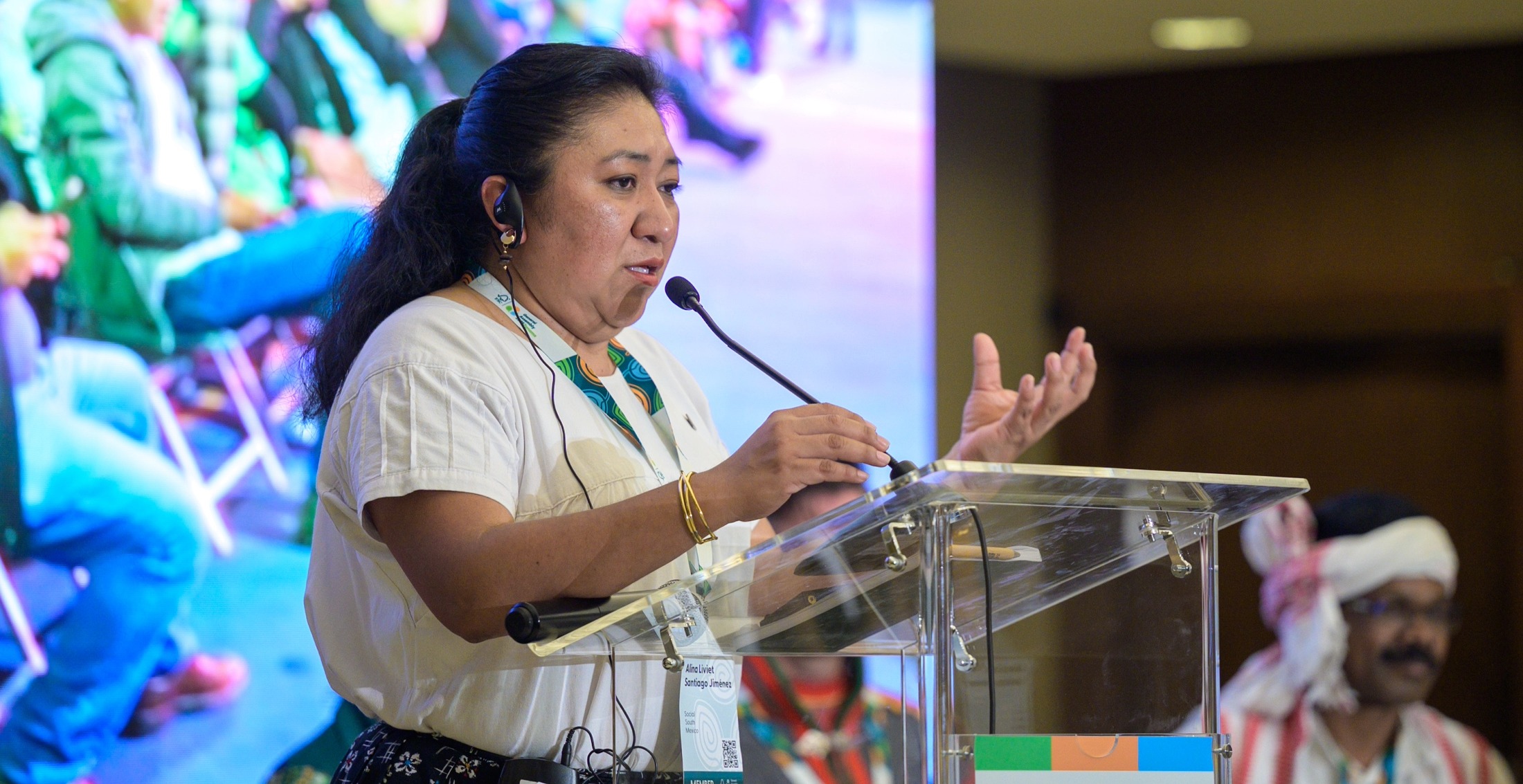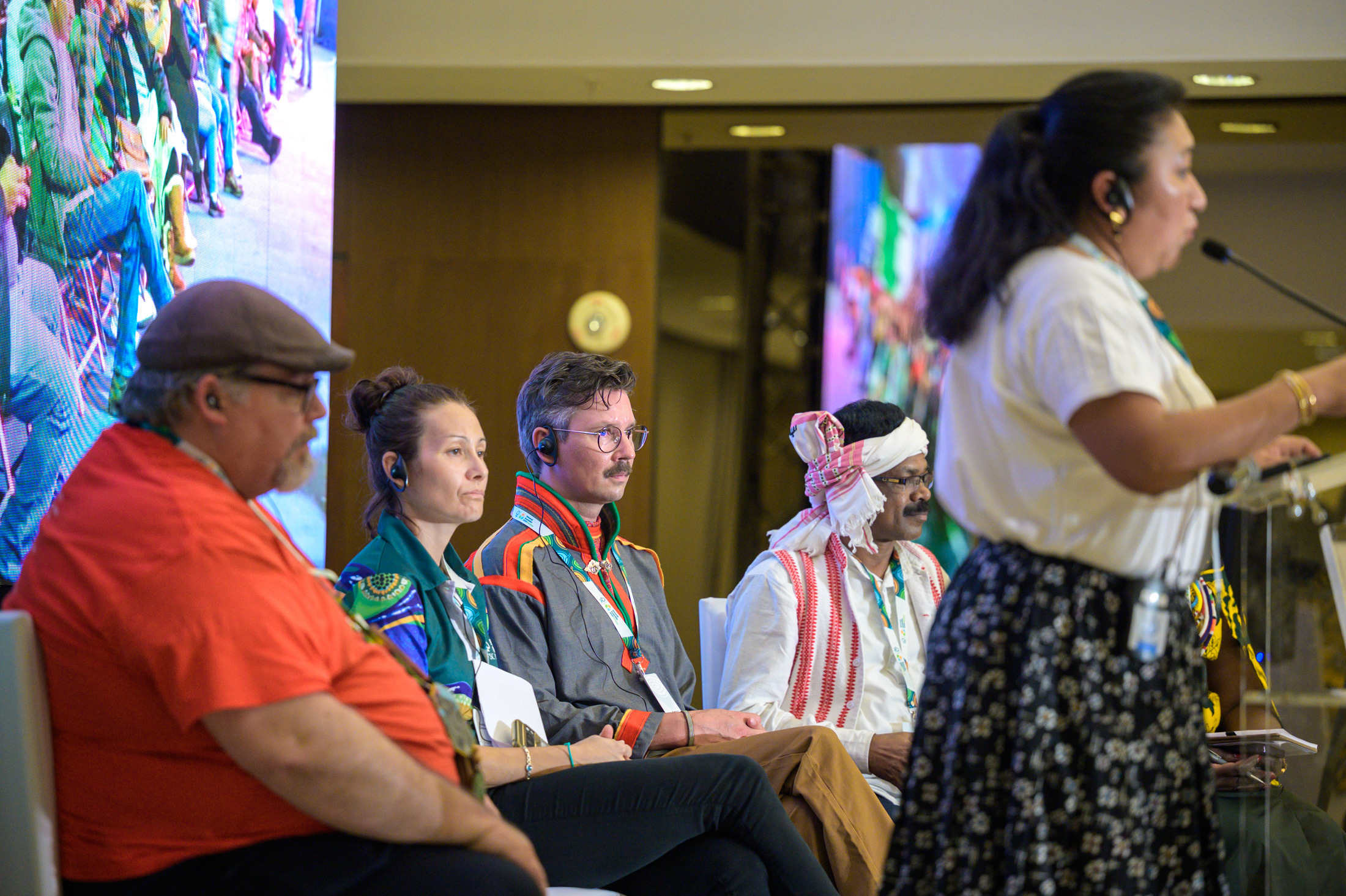
The Forest Stewardship Council (FSC)’s Principle 3 states: “The Organization shall identify and uphold Indigenous Peoples’ legal and customary rights of ownership, use and management of land, territories and resources affected by management activities.” However, cultural, linguistic, and systemic barriers to Indigenous Peoples’ full engagement persist.
An FSC General Assembly 2025 session co-hosted by the FSC Indigenous Foundation and the FSC Social South Chamber discussed strategies to overcome these barriers.
Equal partnership with Indigenous Peoples
Hindou Oumarou Ibrahim, Chair of the FSC Indigenous Foundation, shared that the global climate and biodiversity crises cannot be solved without Indigenous Peoples and their traditional knowledge. She emphasized the importance of true partnership with Indigenous Peoples.
“We must strengthen Indigenous Peoples’ membership not as charity, but as justice,” Hindou said. “Let us make FSC not only a label of sustainable wood, but a symbol of sustainable justice.”

How can FSC be a symbol of sustainable justice?
FSC Permanent Indigenous People Committee (PIPC) members from around the world shared experiences and case studies on strengthening Indigenous membership, leadership, and participation across all levels of FSC.
Alina Liviet Santiago, PIPC chair and representative for Mexico and Central America, described how her community of Ixtlán de Juárez in Oaxaca, Mexico bases decisions on Free, Prior, and Informed Consent (FPIC). Like FSC, the community assembly must balance environmental, social, and economic perspectives equally.
“We take care of the forest, because the profits are not going to be for one person. They are going to go for a whole, for this community, or to reinvest in the forest,” she said.
Tolita David Angeles, PIPC alternate representative for Oceania and Chair of Australia’s Indigenous Working Group shared the Group’s efforts to build shared pathways to Indigenous engagement. They created culturaly safe and appropriate resources, using symbols, drawings, and language as tools of inclusion.
Niila Inga FSC PIPC representative for Europe discussed the threats of climate change to the Sápmi People who live in the Arctic region – which is warming 4 times faster than the rest of the world. He highlighted the urgent need to address climate change impacts holistically while safeguarding Indigenous rights and cautioned against green colonialism.
“FSC has a system that is very unique, Principle 3 is really good, it might need some improvements in some areas but I think the mindset of it is very good,” stated Niila.
David Flood, PIPC representative for North America, noted the power of Principle 3 in supporting First Nations communities in Canada, stating that FSC standards empower communities to hold industry accountable while honoring their culture and FPIC agreements.
Praful Lakra, PIPC representative for Asia, discussed efforts to strengthen networks and Indigenous rights in India and the broader region. He shared that in many communities, FPIC is not respected, and true FPIC ensures that communities have a voice in decisions affecting their lives.

The path forward
Subhra Bhattacharjee, FSC Director General, closed the panel, highlighting the importance of FPIC and re-emphasing Principle 3’s role in placing responsibility on forest managers and companies to respect Indigenous rights.
She urged participants to persist in dialogues, acknowledging that discussions may be difficult but emphasizing that progress requires honest, continuous conversation.
FSC and the FSC Indigenous Foundation continue to strengthen Indigenous participation, as lasting sustainability depends not just on forests, but on the participation and leadership of those who have stewarded them for generations. As Samante Anne, PIPC representative for Africa and moderator of the session put it, “We are the heartbeat of the forest.”

